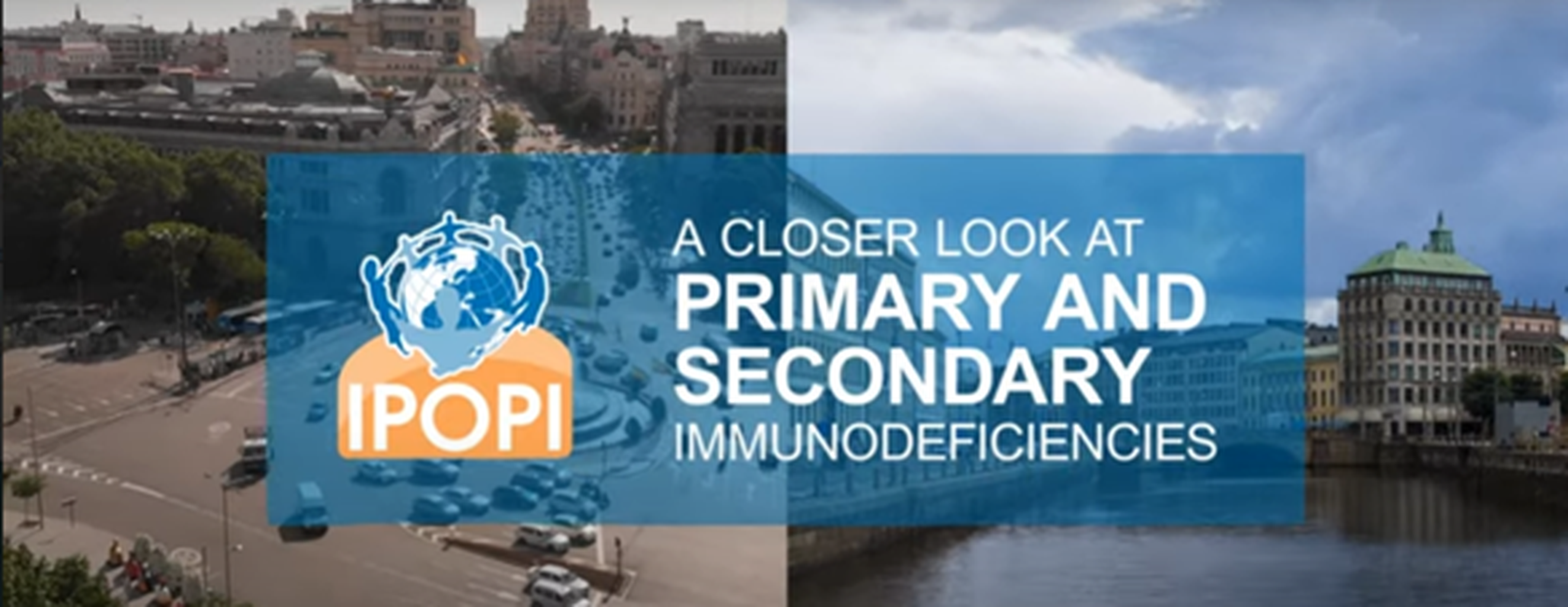New Mini Documentary Exploring Primary and Secondary Immunodeficiencies
Mon Aug. 21st 2023

In the realm of immunology, understanding the intricacies of primary and secondary immunodeficiencies is crucial for both healthcare professionals and patients. IPOPI have created an informative 15-minute film which delves into the similarities and differences between these conditions, the complexity of diagnosing primary immunodeficiencies post-malignancy treatment,
the importance of pre-treatment screening, and the challenges faced in diagnosing immunodeficiencies in low and middle-income countries.
One of the documentary’s focal points is the complexity surrounding the diagnosis of primary immunodeficiencies in individuals who have undergone treatment for cancer. It sheds light on the challenges faced by healthcare professionals in differentiating between treatment-related immunodeficiencies and pre-existing primary immunodeficiencies. This critical topic underscores the significance of early detection and emphasises the need for PID screening before initiating malignancy treatment, and multidisciplinary collaboration across disciplines.
Severe Allergy and Anaphylaxis .
Anaphylaxis is the most severe type of allergic reaction and should always be treated as a medical emergency. Anaphylaxis requires immediate treatment with adrenaline (epinephrine), injected into the outer mid-thigh. Delayed treatment can result in fatal anaphylaxis.
We have several IDFNZ members who have been diagnosed with severe allergies, and who are prescribed Epi-Pens (now available free through Pharmac). It is important to always keep your EpiPen handy and in the case of a child, to have a spare held for your child with the school office/nurse.
All patients/ parents need to have a clear understanding of how to use the EpiPen in case of an emergency, and to be able to communicate an appropriate action plan to other caregivers in the case of child patients. There are some helpful patient resources on the ASCIA website that we recommend for members, including anaphylaxis fact sheets, information on allergic reactions- signs and symptoms, allergic reactions clinical history forms, and other comprehensive information.
Specific items of interest are:
1.ASCIA anaphylaxis e-training for first aid (community) - developed for people in the community, who need to know how to treat anaphylaxis in an emergency but are not health professionals. This includes people with allergies, their parents, carers, friends and colleagues. It is also suitable for people in workplaces, clubs and other institutions throughout Australia and New Zealand. The course provides accessible, consistent, and evidence-based anaphylaxis education and is available free of charge at https://anaphylaxis.ascia.org....
The course has been updated to include two brands of adrenaline (epinephrine) injectors. New infographics and animated videos have also been included, to make the course more interactive and easier to complete. It is recommended that the modules are completed in the order presented. Successful completion of the final module allows you to print a certificate containing your name, the date and your pass mark.
2. Free Posters for Anaphylaxis first aid and use of your Epipen - can also be downloaded. These posters are recommended for parents to print off and provide to schools/childcare centres/ other anyone caring for your child in your absence, along with your child’s Epipen and other medications. Visit https://www.allergy.org.au/hp/...
3. Anaphylaxis Travel Plan – Important for anyone at risk of a severe allergic reaction, and hence travelling with an Epipen. The new ASCIA Travel Plan for people at risk of anaphylaxis has been designed for use with the Action Plans for Anaphylaxis and contains useful tips and advice.
